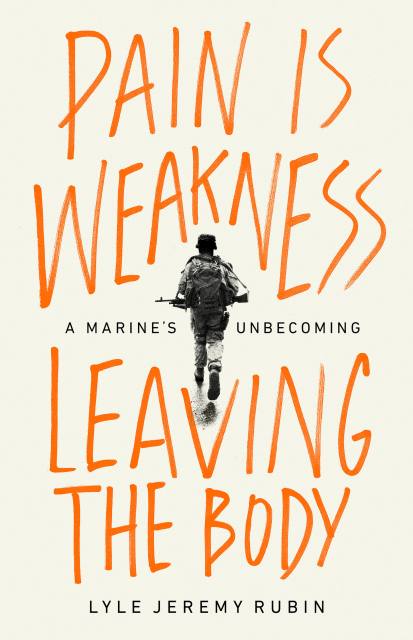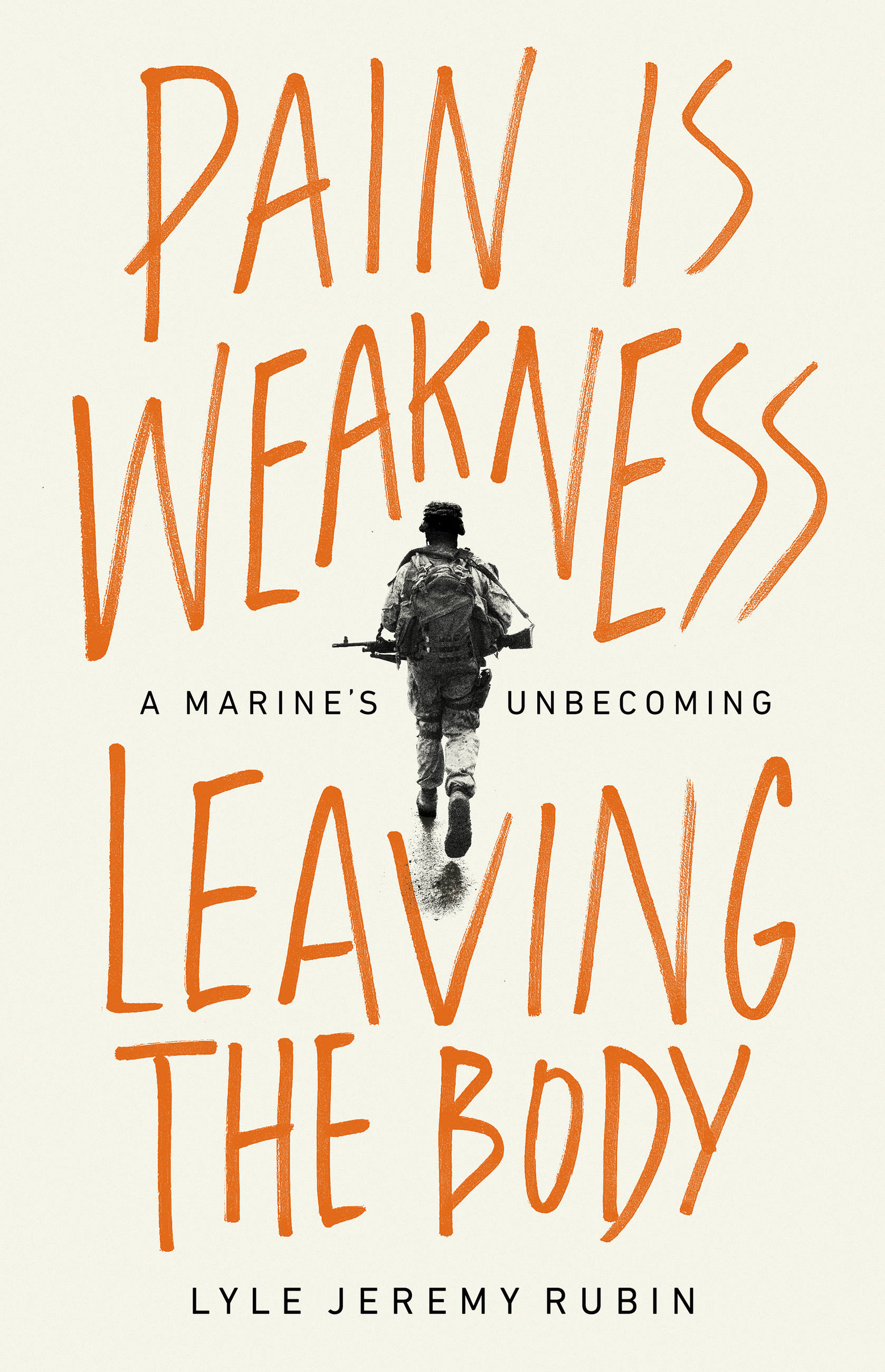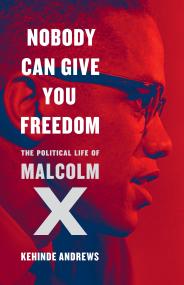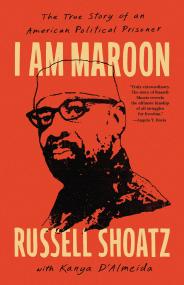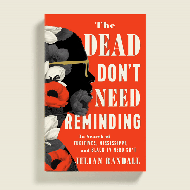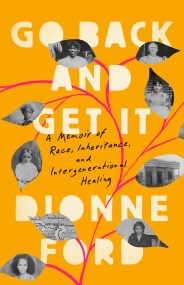By clicking “Accept,” you agree to the use of cookies and similar technologies on your device as set forth in our Cookie Policy and our Privacy Policy. Please note that certain cookies are essential for this website to function properly and do not require user consent to be deployed.
Pain Is Weakness Leaving the Body
A Marine's Unbecoming
Contributors
Formats and Prices
- On Sale
- Nov 1, 2022
- Page Count
- 304 pages
- Publisher
- Bold Type Books
- ISBN-13
- 9781645037095
Price
$29.00Price
$37.00 CADFormat
Format:
- Hardcover $29.00 $37.00 CAD
- ebook $17.99 $22.99 CAD
- Audiobook Download (Unabridged) $27.99
This item is a preorder. Your payment method will be charged immediately, and the product is expected to ship on or around November 1, 2022. This date is subject to change due to shipping delays beyond our control.
Buy from Other Retailers:
An honest reckoning with the war on terror, masculinity, and the violence of American hegemony abroad, at home, and on the psyche, from a veteran whose convictions came undone
When Lyle Jeremy Rubin first arrived at Marine Officer Candidates School, he was convinced that the “war on terror” was necessary to national security. He also subscribed to a strict code of manhood that military service conjured and perpetuated. Then he began to train and his worldview shattered. Honorably discharged five years later, Rubin returned to the United States with none of his beliefs, about himself or his country, intact.
In Pain Is Weakness Leaving the Body, Rubin narrates his own undoing, the profound disillusionment that took hold of him on bases in the U.S. and Afghanistan. He both examines his own failings as a participant in a prescribed masculinity and the failings of American empire, examining the racialized and class hierarchies and culture of conquest that constitute the machinery of U.S. imperialism. The result is a searing analysis and the story of one man’s personal and political conversion, told in beautiful prose by an essayist, historian, and veteran transformed.-
“[Pain Is Weakness Leaving the Body] demonstrates that events on the periphery will always affect the center, and vice versa. Wars fought abroad will always come home. Rubin’s moral injury is shared by everyone. One Marine’s unbecoming becomes a nation’s.... [Yet Pain is Weakness Leaving the Body] is a hopeful one at its heart.... This is Rubin’s own civilizing mission, traversing the civilian-military chasm, memoir in one hand, mirror in the other.”Washington Post
-
“This is not your ordinary military memoir. It is not often that one experiences a truly original mind, a way of thinking combined with literary skill and grounded in hard learned humility, but that is Lyle Jeremy Rubin on his path from acting as an instrument of empire to deconstructing it and understanding the true meaning of freedom, community, and ethics. Never has a takedown of militarism, capitalism, and empire been more powerful and persuasive.”Roxanne Dunbar-Ortiz, author of An Indigenous Peoples’ History of the United States
-
“An instant classic of antiwar literature, Rubin’s stunning coming-of-age story as a US Marine is an absorbing look at how imperial masculinity is made through personal experience and psychic transformation. But the book doubles as a political reflection on how to achieve a critical perspective on our times in a forgetful country. This is a must-read—especially for Americans who rely on the service of others without owning the damaging results.”Samuel Moyn, author of Humane
-
“Few people have traced the connections between masculinity, American empire, and the ailments of our republic with as much unflinching grace as Rubin. Give this book to the angry young men in your life.”Matthieu Aikins, Pulitzer Prize–winning journalist and author of The Naked Don’t Fear the Water
-
“Both a gut-wrenching portrait of the psychic, physical, sexual, and structural violence of American imperialism and a powerful conversion story of transformation from enthusiastic foot soldier to incisive internal critic of American empire. In a moment calling for reckoning with the ravages of America’s wars at home and abroad, this is a worthwhile read.”Adom Getachew, author of Worldmaking after Empire
-
“This is no equivocal or evasive military memoir, content to agonize over war’s dehumanization but unwilling to name the exploitative, extractive, and racist forces that drive it. Rubin’s experiences compel him to see his enemy as the socioeconomic system that rots America out and drives it to dominate the world.”Spencer Ackerman, Pulitzer Prize–winning journalist and author of Reign of Terror
-
“What’s a nice neocon kid and AIPAC intern doing in a place like the US Marine Corps? Having his worldview shattered and coming to see American life in a new way, as it turns out. Rubin’s memoir is more about his changing perception than his combat experience. Original, thoughtful, sometimes raw, and often provocative.”Stephen Kinzer, author of Poisoner in Chief
-
“In recounting his own personal path into and out of the military, Rubin beautifully intertwines memoir, political analysis, and sweeping history. In the process, he offers a powerful articulation of the cycles of violence and discontent generated time and again, both at home and abroad, by the US security state. The result is essential reading for all concerned Americans.”Aziz Rana, author of Two Faces of American Freedom
-
“Rubin has written much more than a riveting war story, which brings him from boot camp to Afghanistan’s Helmand Province to kill or be killed. Pain is Weakness Leaving the Body is a distressing, humane, searching story of coming of age in 21st-century America — of joining the ranks of the angry privileged, of seeking to dominate but, in time, learning to listen. Engrossing to the last word.”Stephen Wertheim, author of Tomorrow the World: The Birth of U.S. Global Supremacy
-
“Weakness might or might not leave the body, but wisdom and empathy flow in upon reading Rubin’s gripping account of his time as a post–9/11 soldier. Rubin’s book is an intellectual and moral challenge, a war memoir that forces the reader to wrestle as much with ideas as with battle stories. Rubin’s beautiful, Hemingway-esque clipped cadence is perfect for trying to make sense of our baroque, wounded world.”Greg Grandin, Pulitzer Prize–winning author of The End of the Myth
-
“Like Orwell in ‘Shooting an Elephant,’ Rubin is disgusted by the work he did for a colonizing empire, and yet he remains fascinated by the thinking that brought him there. In shape-shifting prose both narrative and philosophical, Rubin shows the deep connections between masculinity and militarism as they play out in his own life and the larger world in which the American empire operates. This a book full of pain, weakness, and bodies, but it is wise enough to know that only the bodies are ever really gone.”Baynard Woods, author of Inheritance
-
“A fierce denunciation of a pointless war.”Kirkus Reviews
-
“Lyle Jeremy Rubin’s Pain Is Weakness Leaving the Body is an astounding book. Part searing memoir, part unsparing historical and political inquiry, and part literary and philosophical odyssey, Rubin’s book is by turns erudite and raw, and held together by prose at once elegant and unwavering. As a meditation on war, masculinity, and identity—both personal and national—there is nothing else like it.”Patrick Blanchfield, author of forthcoming Gunpower: The Structure of American Violence
-
“Thoughtful… [Pain Is Weakness Leaving the Body] is, in many ways, a bildungsroman of the 9/11 generation.... The strength of this book is that its passages on [Rubin’s] yearning for violence, and his embarrassment at that yearning, are not the endpoints of his exploration, as they might be in the hands of other veterans. Yes, he is soul-searching, but the soul he examines most intensely is America’s, not his own.”The Intercept
-
“[This] excellent new book-length reflection… on military training, socialization, and combat duty in the Middle East definitely won’t end up on the reading lists of college-level or junior ROTC programs, or even the US service academies. But many civilian readers will benefit from the policy critiques and personal insights found in…Lyle Jeremy Rubin’s Pain Is Weakness Leaving the Body.”Jacobin
-
“[A] fine memoir… [A] sign of a moral conscience fully alive.”Slant Books
-
“Rubin recounts his path into the Corps in deeply personal anecdotes, stretching back into his youth as a confused, conservative suburban kid in 1990s Connecticut, through a failed first attempt at Officer Candidate Training School, to the hollowing experience of boot camp at Parris Island, then on through his path to war. That is a well-trodden storyline in American film and letters — a fact that in itself says a lot about the bloodiness of American history — Rubin brings a wider lens and a more cutting critical insight to it than most, weaving in a deep reading of not only U.S. imperial history but also race, labor struggles, and gender.”Jonathan Katz, author of Gangsters of Capitalism: Smedley Butler, The Marines, and the Making and Breaking of America’s Empire, in his newsletter The Racket
Newsletter Signup
By clicking ‘Sign Up,’ I acknowledge that I have read and agree to Hachette Book Group’s Privacy Policy and Terms of Use
